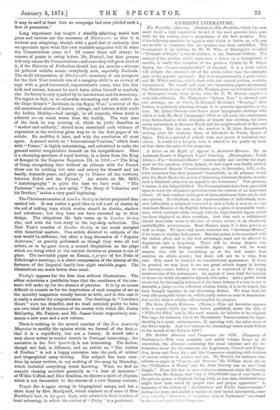A Letter on the Right of Appeal in Assistant - Masters. By
an Assistant-Master of Eighteen Years' Standing. (Birmingham: Josiah Allen.)—The "Assistant-Master" restates fully and forcibly the argu- ment on this question, which, indeed, we had hoped was finally settled. The Endowed- Schools' Commissioners gave, in December, 1872, a dis- tinct assurance that they purposed "henceforth, in all schemes which give the Head Master the power of dismissing Assistant-Masters, to make such a dismissal subject to an appeal to the Governors." This promise, it seems, is not being fulfilled. The Commissioners have been prevailed upon to erase the stipulated provision from the scheme of an important school. Of such conduct on the part of these gentlemen there can be but one opinion. To withdraw, on the representations of individuals, how- ever influential, a safeguard conceded to such a body of men as are the Assistant-Masters of the English Schools is a piece of lamentable weak- ness, which contrasts oddly enough with the high-handed vigour which has been displayed on other occasions. And that such a withdrawal should have been made in the face of recent events is an absolutely unintelligible perverseness. Head Masters must, it is true, govern as well as reign. We have very much mistaken the "Assistant-Master," if he wants to abridge their power. But that power, to be exercised with the fullest effect and to the best advantage, must not be allowed to degenerate into a despotism. There will be strong despots who will let personal feelings override right ; there will be weak despots who will let everything go to the bad sooner than exercise an odious power ; but there will not be a wise, firm rule. This must be founded on constitutional guarantees. If these be granted, we may hope to -.see our groat schools happy in having no history,—such history, we mean, as is registered in the angry controversies of the newspapers. An appeal of some kind the injured, or those who think themselves injured, will make. And a public which never can be thoroughly informed of tho inner history of a case is not so desirable a judge as the collective wisdom which, it is to be hoped, has been brought together in our Governing Bodies. We hope that the very able pamphlet before us, which really comes as near to demonstra- tion as the subject admits, will accomplish its purpose.










































 Previous page
Previous page